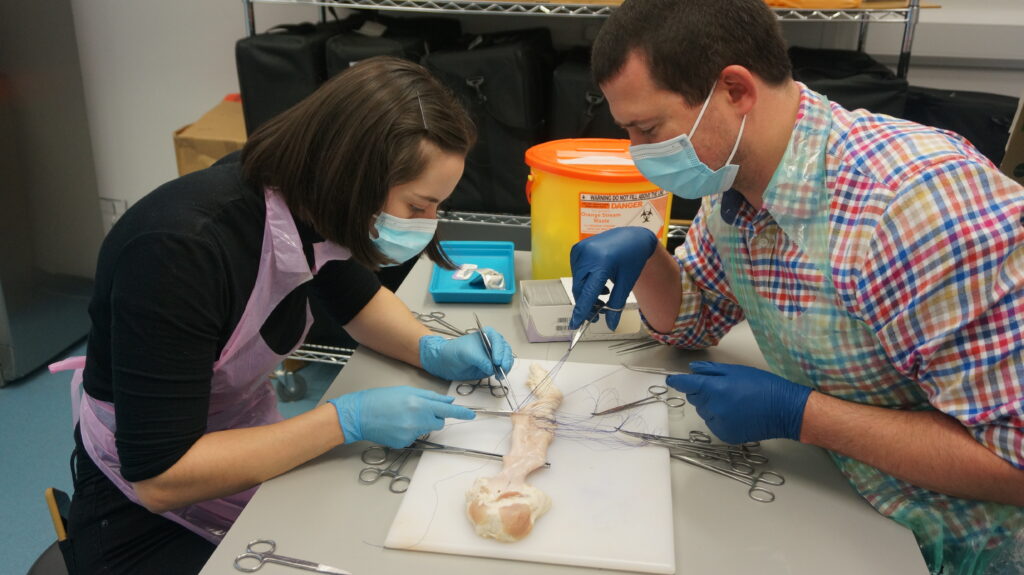The launch of a digital and physical simulation programme is set to “revolutionise” Scotland’s approach to surgical training by enabling aspiring surgeons to develop key skills before coming face-to-face with patients.
This month will see the innovative learning technique – which has “taken off during the pandemic” – incorporated into NHS Scotland’s general surgery training scheme.
As part of the pilot, kits will be deployed, allowing participants to hone their surgical skills at home and upload videos online for feedback.
They include three-dimensional printed hydrogel organs and laparoscopic training packs and software, both developed in Scotland by eoSurgical and Organ Like.
The learners will also enhance their “human factor” skills, including team-work, leadership, communication and decision-making.
The training, which builds on the “world-leading successes” of NHS Scotland’s core training programme, is being delivered around the country.
In Inverness and Lanarkshire, skills centres have expertise in simulating ward rounds and other team activities using volunteer patients and mannequins.
Meanwhile in Edinburgh, the Royal College of Surgeons is developing consultation skills training.
And in Dundee and Glasgow there are centres where operations and operating theatre scenarios can be simulated.
Professor Kenneth Walker, consultant surgeon, associate dean and simulation lead for core surgical training said: “It’s a no-brainer that we should be using more simulation, but it needed proper integration into our training programmes. Scotland has been the perfect setting to pull it off. It’s the lightbulb moments that are most exciting, as trainees learn profound things that they otherwise would have had to learn the long way, on the job.”
Humza Yousaf, cabinet secretary for health and social care said: “The Scottish Government is delighted to support the development of simulation training for medical staff. It is an important component in the training of the highly skilled workforce that we need. This development in particular confirms Scotland as a leader in the training of surgeons.”
Dr Andrea Baker, NES clinical skills manager, said: “We are really excited to support this new venture which aligns with the NES five-year Skills and Simulation Strategy. Our plan is to enhance and expand the use of simulation, eventually for all trainees in medical specialities, recognising the powerful role simulation has in creating a reliable, sustainable and flexible workforce for NHS Scotland.”
The latest workstream will be led by recently-appointed Mr Brian Stewart, a Lanarkshire-based consultant surgeon and educator.
